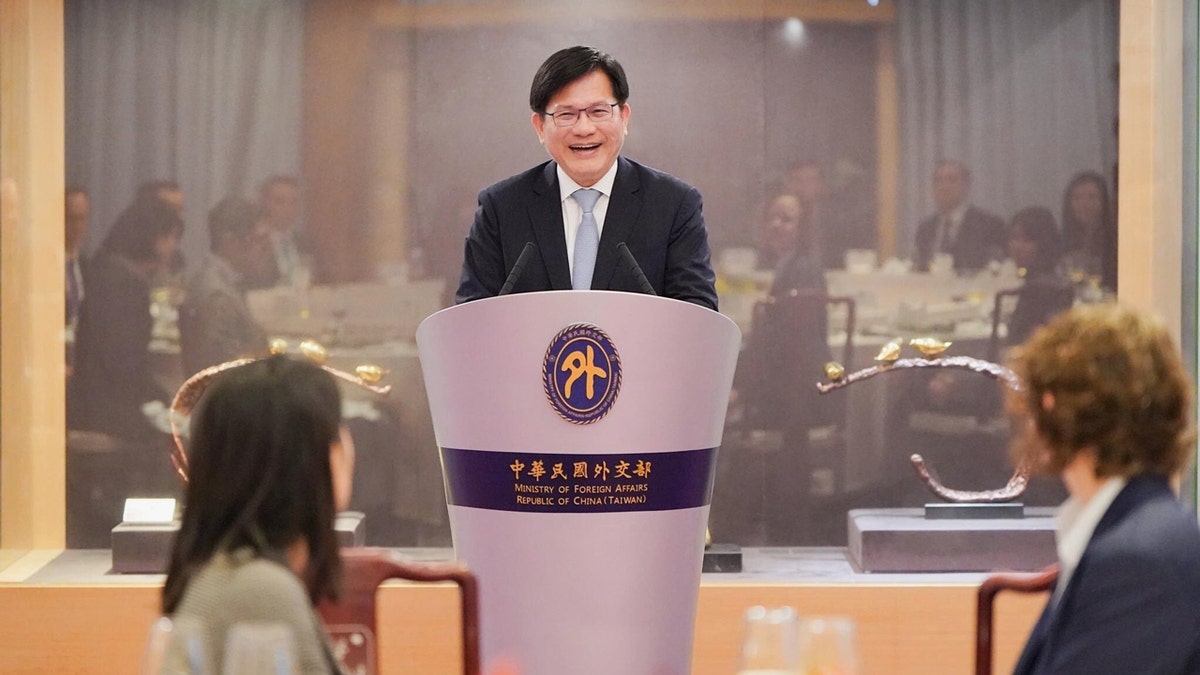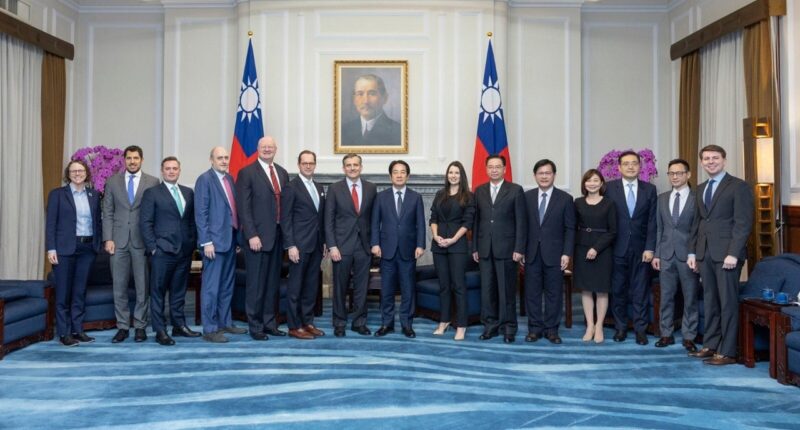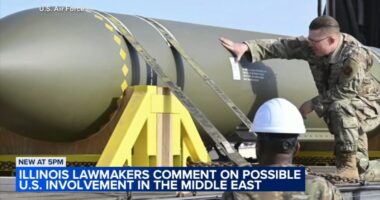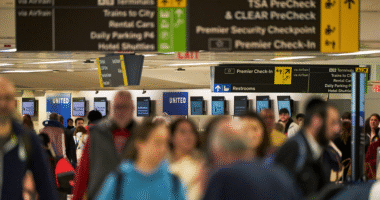Liam Keen, a member of the U.S.-based NGO Formosan Association for Public Affairs, emphasized the importance of not letting China’s protests hinder closer ties between the U.S. and Taiwan. He highlighted his organization’s significant support in the passing of the Taiwan Travel Act in 2018, signed into law by then-President Donald Trump, which eased travel restrictions for U.S. officials visiting Taiwan.
The Taiwan Travel Act faced strong criticism from China, with Keen pointing out that it was unanimously approved by the U.S. Senate. He mentioned that China’s labeling of the act as a ‘red line’ only served to strengthen the resolve of key supporters like Sen. Marco Rubio and [former] Rep. Steve Chabot in standing up against Chinese Communist Party intimidation.

Foreign Minister Lin Chia-lung speaking to a delegation from the U.S. (Taiwan Foreign Ministry)
Taiwan’s Foreign Minister Lin expressed optimism about collaborating with the new U.S. administration and stressed the importance of enhancing economic partnerships. Lin highlighted the increasing investments made by Taiwanese companies such as TSMC, which has allocated $65 billion for a project in Arizona. President Lai underlined Taiwan’s global significance, with Lin quoting Lai’s belief that a more secure Taiwan contributes to a safer world.
War between the U.S. and China over Taiwan would be catastrophic for both superpowers and the globe. Aside from horrific human losses, Bloomberg Economics estimated in 2024 that the “price tag” of such a war could be around $10 trillion; 10% of global GDP – “dwarfing the blow from the war in Ukraine, COVID pandemic and global financial crisis.” Increased contact between the United States and Taiwan to build trust, and transmit accurate, bias-free information is a major key to ensuring such a conflict never happens.

















